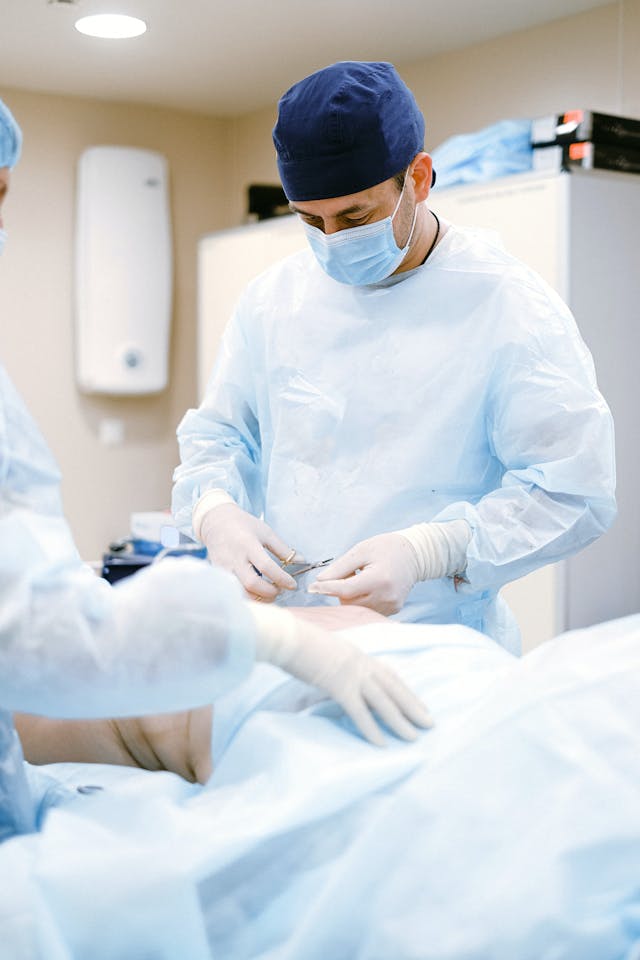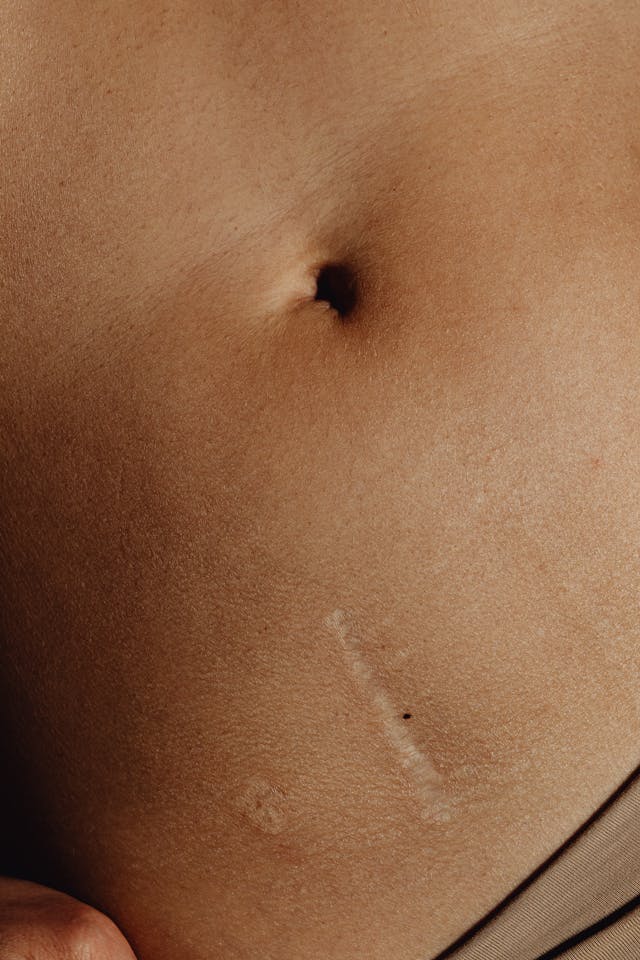CALL TODAY 646-846-1136 | EMAIL
Stomach Surgery: Surgical Procedures for Gastric Disorders
 Stomach surgery is an essential treatment option for various gastric disorders, especially when non-surgical treatments such as medications and lifestyle modifications are not sufficient. Gastric disorders can significantly impact a person’s quality of life, causing discomfort, pain, and digestive issues. Fortunately, advancements in general surgery offer a range of effective surgical solutions for addressing these disorders.
Stomach surgery is an essential treatment option for various gastric disorders, especially when non-surgical treatments such as medications and lifestyle modifications are not sufficient. Gastric disorders can significantly impact a person’s quality of life, causing discomfort, pain, and digestive issues. Fortunately, advancements in general surgery offer a range of effective surgical solutions for addressing these disorders.
In this article we will explore common gastric disorders that may require surgery, the different types of stomach surgery, and what patients can expect during recovery.
Common Gastric Disorders Requiring Surgery
There are several stomach-related conditions that may require surgical intervention when conservative treatments fail. Some of the most common gastric disorders include:
1. Stomach Cancer (Gastric Cancer)
Stomach cancer occurs when malignant cells form in the lining of the stomach. Symptoms often include persistent stomach pain, nausea, unexplained weight loss, and difficulty swallowing. Early detection is crucial, and surgery is often the primary treatment option for removing cancerous tissues.
2. Peptic Ulcer Disease
Peptic ulcers are open sores that develop on the inner lining of the stomach or the small intestine due to excessive stomach acid. While most ulcers can be treated with medications, severe cases that lead to bleeding, perforation, or obstruction may require surgical intervention to repair the damage and prevent further complications.
3. Gastroesophageal Reflux Disease (GERD)
GERD is a chronic digestive disorder where stomach acid frequently flows back into the esophagus, causing discomfort, heartburn, and possible damage to the esophageal lining. In severe or long-standing cases of GERD, surgery may be required to prevent further complications.
4. Gastroparesis
Gastroparesis is a condition where the stomach muscles do not function properly, leading to delayed stomach emptying. This can result in nausea, vomiting, and malnutrition. Surgery may be necessary in cases where gastroparesis severely affects a patient’s quality of life and other treatments have been ineffective.
5. Obesity (Morbid Obesity)
For individuals with morbid obesity, weight loss surgery (also known as bariatric surgery) may be recommended to help achieve and maintain a healthy weight. This can also help manage or resolve related conditions like type 2 diabetes, hypertension, and sleep apnea.
Types of Stomach Surgery
There are several surgical options for treating stomach-related disorders. The choice of surgery depends on the specific condition, the severity of the disease, and the overall health of the patient. Some of the most common types of stomach surgery include:
1. Gastrectomy
A gastrectomy involves the partial or complete removal of the stomach and is most commonly used to treat stomach cancer. There are three main types of gastrectomy:
- Partial Gastrectomy: In this procedure, only the cancerous part of the stomach is removed, and the remaining portion is reconnected to the small intestine.
- Total Gastrectomy: The entire stomach is removed, and the esophagus is connected directly to the small intestine.
- Sleeve Gastrectomy: This procedure, often used in bariatric surgery, involves removing a large portion of the stomach, leaving behind a tube-like structure that limits food intake.
2. Fundoplication
Fundoplication is a surgical procedure often used to treat severe GERD. During the procedure, the top of the stomach is wrapped around the lower esophagus to strengthen the esophageal sphincter and prevent acid reflux. This surgery can be performed laparoscopically, offering the benefits of smaller incisions, less pain, and a faster recovery.
3. Bariatric Surgery (Weight Loss Surgery)
Bariatric surgery is performed to help patients with morbid obesity achieve significant weight loss and manage obesity-related health conditions. The most common types of bariatric surgery include:
- Gastric Bypass (Roux-en-Y): In this procedure, a small stomach pouch is created, and a portion of the small intestine is rerouted to bypass the majority of the stomach and the first section of the small intestine. This limits food intake and calorie absorption.
– Sleeve Gastrectomy: As mentioned earlier, this procedure involves removing a large portion of the stomach, creating a smaller stomach “sleeve” that restricts food intake. - Adjustable Gastric Banding: A silicone band is placed around the upper portion of the stomach to create a small stomach pouch, limiting how much food can be eaten at one time.
4. Pyloroplasty
Pyloroplasty is a procedure used to treat conditions like gastroparesis by widening the pylorus, the passage between the stomach and the small intestine. This allows for easier passage of food from the stomach to the intestines, improving digestion and reducing symptoms like nausea and vomiting.
5. Vagotomy
A vagotomy is a surgical procedure where the vagus nerve, which stimulates acid production in the stomach, is cut to reduce acid secretion. This surgery is sometimes performed in conjunction with a gastrectomy to treat peptic ulcers that are resistant to other treatments.
Minimally Invasive Surgical Techniques
Many of the procedures mentioned above can be performed using minimally invasive techniques, such as laparoscopy or robotic-assisted surgery. These techniques offer several advantages over traditional open surgery, including:
- Smaller incisions and less scarring
- Reduced post-operative pain
- Shorter hospital stays
- Faster recovery times
- Lower risk of infection
For patients who qualify, minimally invasive surgery can provide excellent outcomes with fewer complications and a quicker return to daily activities.
Recovery After Stomach Surgery

Recovery from stomach surgery varies depending on the specific procedure and the patient’s overall health. In general, patients who undergo minimally invasive procedures tend to recover more quickly than those who have traditional open surgery. Here are some general guidelines for what to expect during recovery:
- Hospital Stay: Most patients will need to stay in the hospital for a few days after surgery. During this time, they will be monitored for complications and receive pain management and nutrition through an IV.
- Dietary Changes: After stomach surgery, patients will need to follow a specific diet, often starting with liquids and gradually transitioning to solid foods. A nutritionist will work with patients to create a diet plan that supports healing and meets nutritional needs.
- Activity Restrictions: Patients will be encouraged to move around soon after surgery to prevent blood clots, but strenuous activities and heavy lifting will need to be avoided for several weeks.
- Follow-Up Care: Regular follow-up appointments with the surgeon are essential to monitor healing, address any complications, and ensure that the stomach is functioning properly.
Stomach Surgery & Surgical Procedures for Gastric Disorders: Conclusion
Stomach surgery can be a life-changing intervention for those suffering from chronic gastric disorders. Whether it’s addressing cancer, severe acid reflux, peptic ulcers, or obesity, surgical treatments can provide lasting relief and improve quality of life. With the availability of minimally invasive techniques, patients can now experience faster recovery times and fewer complications.
If you’re experiencing persistent gastric issues or have been diagnosed with a condition that may require surgery, it’s essential to consult with an experienced surgeon who specializes in stomach surgery.
For more information or to schedule a consultation, contact the expert surgeons at Lenox Hill Minimally Invasive Surgery. They provide personalized treatment plans using the latest surgical advancements to help patients achieve the best possible outcomes.
Contact Information
LENOX HILL MINIMALLY INVASIVE SURGERY
117 E 77th Street
Suite 1A
New York, NY 10075
646-846-1136
admin@lenoxmis.com

